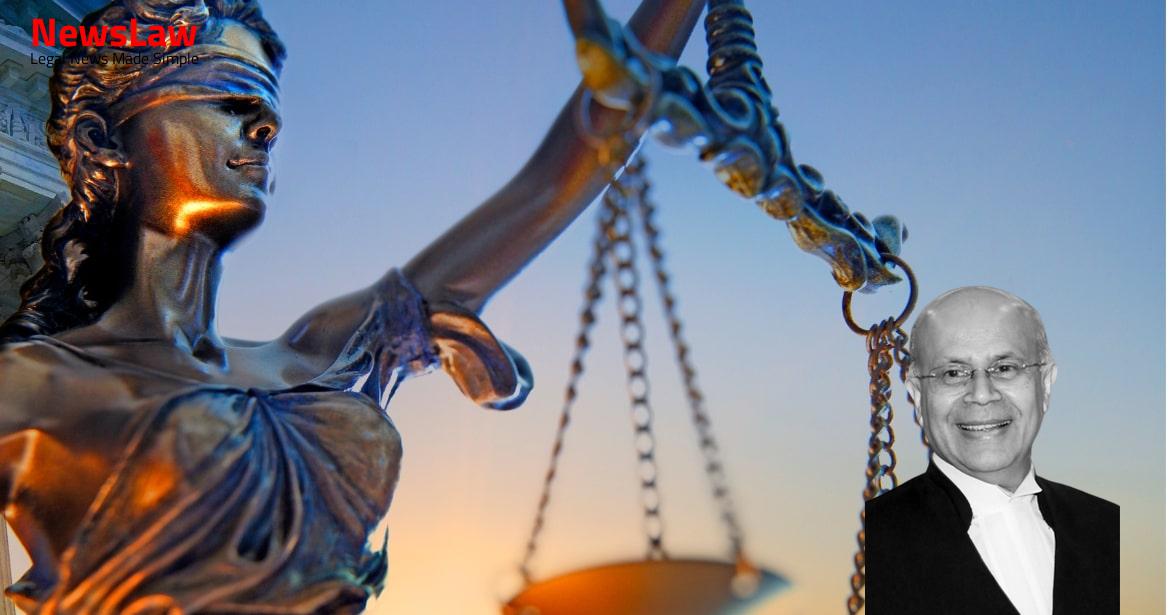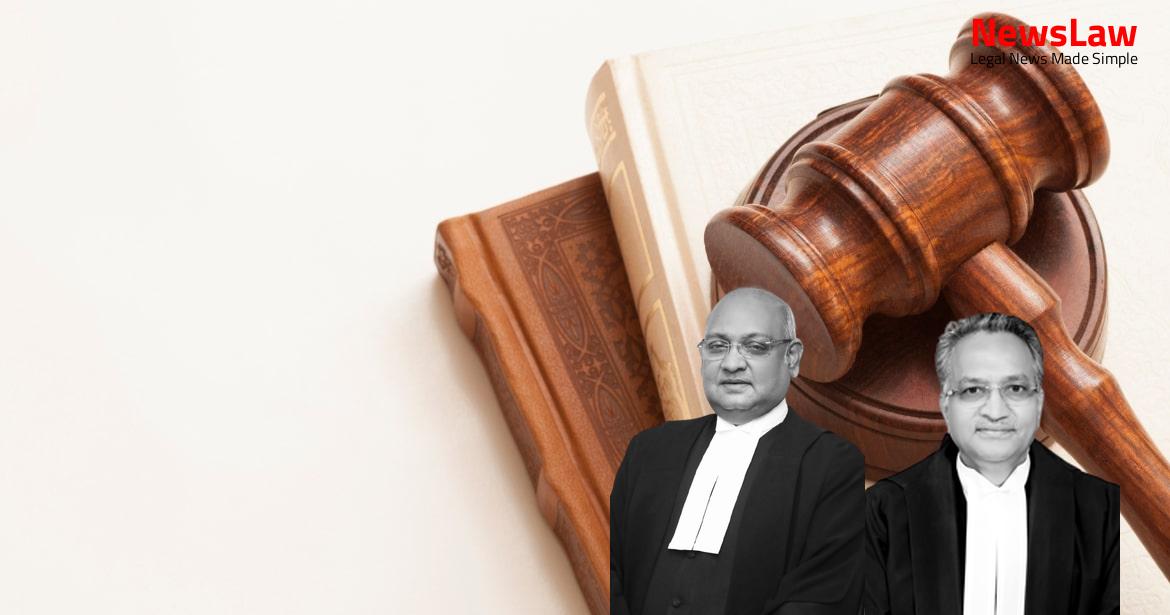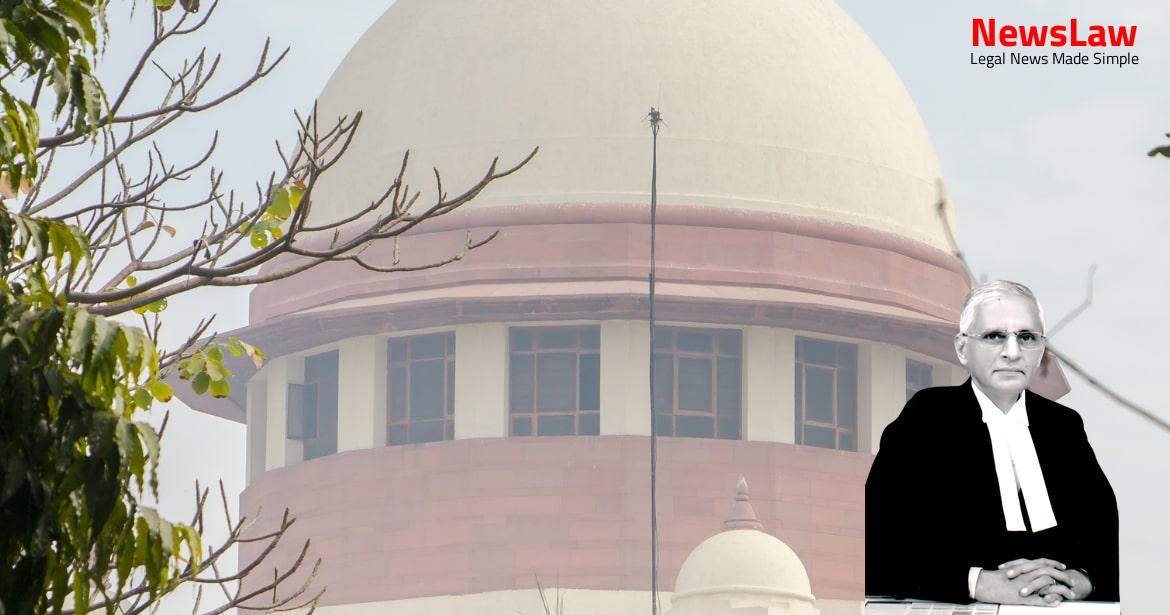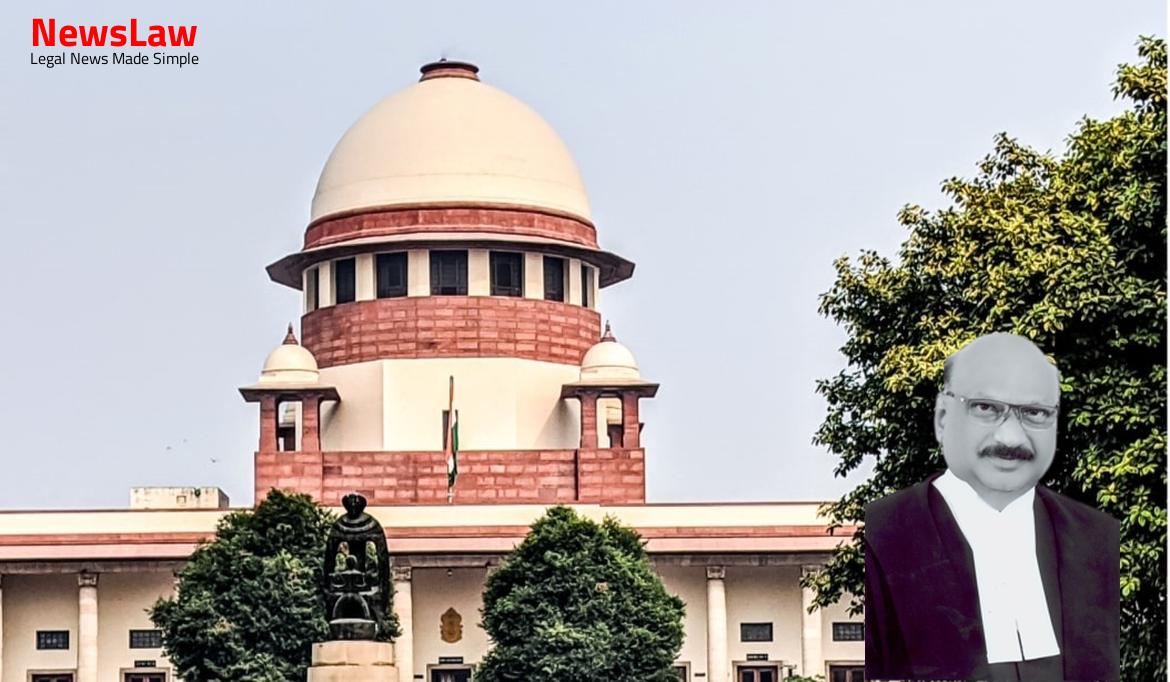Delve into the intricate legal analysis conducted by the High Court within its revisional jurisdiction, particularly in reevaluating evidence and assessing the legality, regularity, and propriety of court decisions. The boundaries of the High Court’s role in ensuring justice through proper legal scrutiny are scrutinized in this summary.
Facts
- The first floor room was let to the tenant on 10.07.1998 at a monthly rent of Rs.250/- which was later enhanced to Rs.317/-.
- The ground floor room was let to the tenant on 10.10.1991 at a monthly rent of Rs.300/- which was later enhanced to Rs.800/-.
- The respondent-landlord filed eviction petitions on 11.10.2013 for two rooms based on arrears of rent, bonafide requirement for additional accommodation, and material damage to the premises under the Kerala Rent Control Act.
- The tenant occupies two shop rooms – one on the ground floor and the other on the first floor, each measuring 60 square feet.
- The tenant uses the ground floor room for a textile business and the first floor as a godown.
- The trial court ruled against the landlord on the first and third grounds mentioned in the eviction petitions.
- The trial court agreed with the landlord’s claim of bonafide requirement for additional accommodation due to the need to accommodate staff members and materials for the landlord’s construction firm, M/s Prabeesh Constructions.
- The Commissioner’s Report did not confirm that any particular rooms were vacant in the premises.
- The Rent Control Appellate Authority reversed the trial court’s decision on eviction petitions.
- The landlord claimed that suitable rooms for the tenant’s office expansion were available in the building.
- Evidence showed that the building where the petition schedule rooms were located had 36 rooms, with some lying vacant.
- The Commissioner’s report indicated that some rooms in the tenant’s possession were vacant.
- The Appellate Authority also noted vacant rooms in other buildings owned by the landlord.
- The Appellate Authority disagreed with the trial court’s criticism of the landlord for not producing documents on vacant rooms, citing PW1’s admission and the production of documents.
- The Appellate Authority determined that the landlord failed to report the occupation of rooms to the Panchayat, affecting the case.
- The Appellate Authority rejected the landlord’s claim of bonafide requirement for additional accommodation based on these grounds.
Also Read: Legal Analysis on Physical Ability in Rape Case
Arguments
- The appellant’s counsel argued that the High Court, in its revisional jurisdiction, cannot act as a second court of first appeal by setting aside findings of fact by the Appellate Authority on reappreciation.
- A similar view was taken in Ubaiba v. Damodaran, as stated in (1999) 5 SCC 645.
- The respondent’s counsel relied on Ram Dass v. Ishwar Chander, a three-Judge Bench decision, to support the High Court’s interference with the findings of the Appellate Authority.
- It was argued that there was no perversity in the detailed findings given by the Appellate Authority and that the High Court exceeded its revisional jurisdiction by substituting the trial court’s findings.
- The appellant’s counsel cited a three-Judge Bench decision to support their position.
- On the other hand, the respondent’s counsel relied on the judgment in Badrinarayan Chunilal Bhutada v. Govindram Ramgopal Mundada, (2003) 2 SCC 320, particularly paragraphs 10 and 13.
- The respondent’s counsel strongly supported the trial court’s judgment, claiming that the Appellate Authority had perversely dealt with material facts and its decision was rightly set aside by the High Court within its revisional jurisdiction.
Also Read: Legal Analysis on Admissions and Document Consideration in Insolvency Case
Analysis
- The lower court and the Appellate Authority found that the tenant had vacant rooms available in the locality to shift his business.
- The High Court disagreed with the lower court’s interpretation of Section 11(8) of the Kerala Rent Control Act, regarding the availability of vacant rooms in other buildings.
- The High Court upheld the finding of the Appellate Authority regarding the tenant’s occupation of a room in a building owned by Abdul Rehman.
- The High Court also considered the tenant’s temporary use of another room in Abdul Rehman’s building for storage during festival occasions.
- The High Court emphasized the importance of comparative hardship in deciding eviction cases.
- The Rent Control Court was justified in finding that the hardship to the tenant would outweigh the advantage to the landlord if an eviction order was passed.
- In the case of an application made under sub-section (8), the Rent Control Court can reject the application if it believes that the hardship to the tenant outweighs the advantage to the landlord.
- The appellate authority for Section 18 can be a Subordinate Judge, the District Court, or the High Court depending on the case.
- The High Court or District Court can review any order or proceedings under this Act to ensure legality, regularity, or propriety, upon application of an aggrieved party.
- A landlord occupying only a part of a building can request the Rent Control Court to put a tenant in the remaining portion of the building if additional accommodation is needed for personal use.
- The observation in Ram Dass v. Ishwar Chander (1988) 3 SCC 131 noted that the revisional power of the High Court is wider under the expression ‘legality and propriety’ than under Section 115 of the Code of Civil Procedure.
- The revisional jurisdiction of the High Court under Rent Control Acts does not equate to the power of an appellate court to reassess evidence for a different finding on facts.
- The High Court, in revisional jurisdiction, can correct findings of fact if they are perverse, based on no evidence, or result in a gross miscarriage of justice, as per the decision in V.M. Mohan v. Prabha Rajan Dwarka (2006) 9 SCC 606.
- The High Court’s role in revisional jurisdiction is to ensure that the decision is according to law and does not suffer from procedural illegality or irregularity.
- The view of the three-Judge Bench in Rukmini Amma Saradamma v. Kallyani Sulochana (1993) 1 SCC 499 is approved, emphasizing that the word ‘propriety’ does not empower the High Court to reevaluate evidence but to assess the legality, regularity, and propriety of the impugned order.
- Conflicting views exist on whether the High Court can reappreciate evidence in revisional jurisdiction under the expression ‘legality and propriety’, requiring consideration by a larger Bench.
- High Court acted outside its revisional jurisdiction by substituting findings
- Appellate Authority set aside the vague finding and provided a detailed explanation
- The Appellate Authority’s decision is outlined in paragraph 5 of the judgment
Also Read: Analysis of Transfer of Winding Up Proceedings to NCLT
Case Title: ADDISSERY RAGHAVAN Vs. CHERUVALATH KRISHNADASAN (2020 INSC 418)
Case Number: C.A. No.-002528-002529 / 2020



